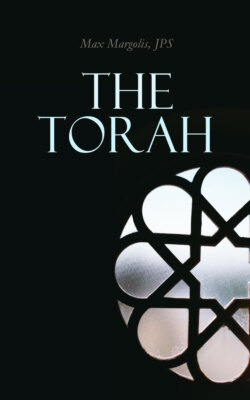Читать книгу The Torah - Max Margolis - Страница 14
На сайте Литреса книга снята с продажи.
Penal Law.
ОглавлениеMontefiore was correct when, in laying emphasis on the ethical aspect of the Biblical concept of God, he declared that even the law of the Bible was permeated with morality, propounding his view in the following words ("Hibbert Lectures," p. 64): "Most original and characteristic was the moral influence of Jahveh in the domain of law. Jahveh, to the Israelite, was emphatically the God of the right. . . . From the earliest times onward, Jahveh's sanctuary was the depository of law, and the priest was His spokesman." The most prominent characteristic of the Pentateuchal law, as compared with the laws of ancient peoples and of medieval Europe, is mildness, a feature which is still further developed in the Talmud. The Torah is justly regarded as the source of humane law. Although such phrases occur as "that soul shall be cut off from his people" or "so shalt thou put the evil away from the midst of thee," it would be incorrect to take them literally, or to deduce from them certain theories of penal law, as Förster has recently done. On the contrary, these expressions prove that the Mosaiclaw was not a legal code in the strict sense of the term, but an ethical work. Although the Talmudists made it a penal code, instinctively reading that character into it, the penal law of the Torah is something theoretical which was never put into practise. This view is supported by the fact that a commandment is stated sometimes without the threat of any penalty whatever for its violation, and sometimes with the assignment even of death as a punishment for its transgression. In like manner, tradition frequently substitutes such a phrase as "he forfeited his life" for "transgression worthy of death."
